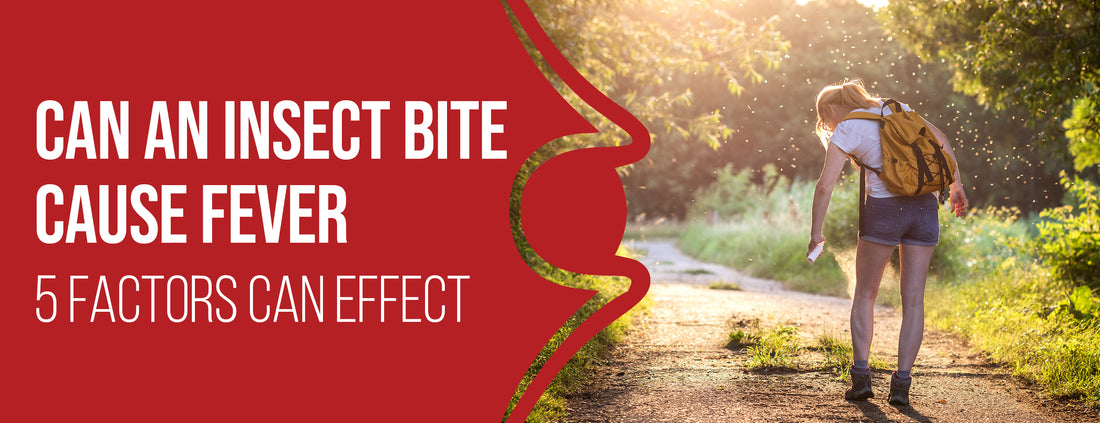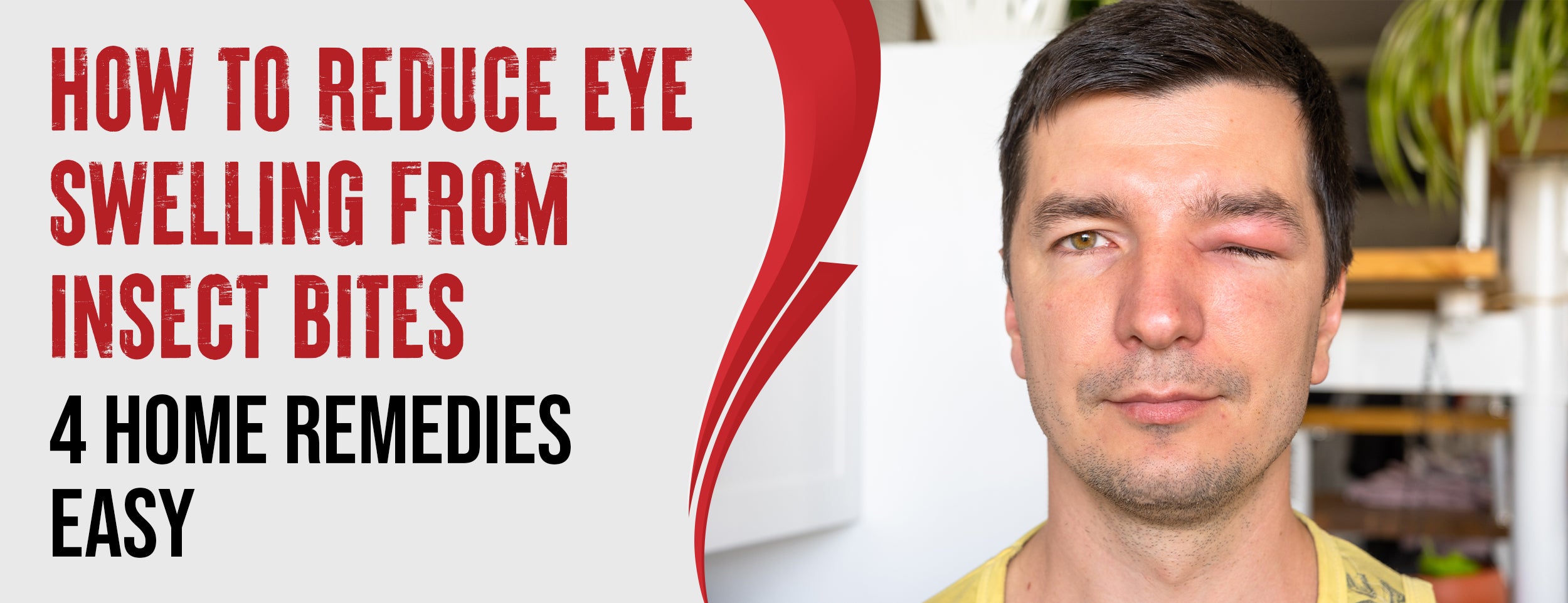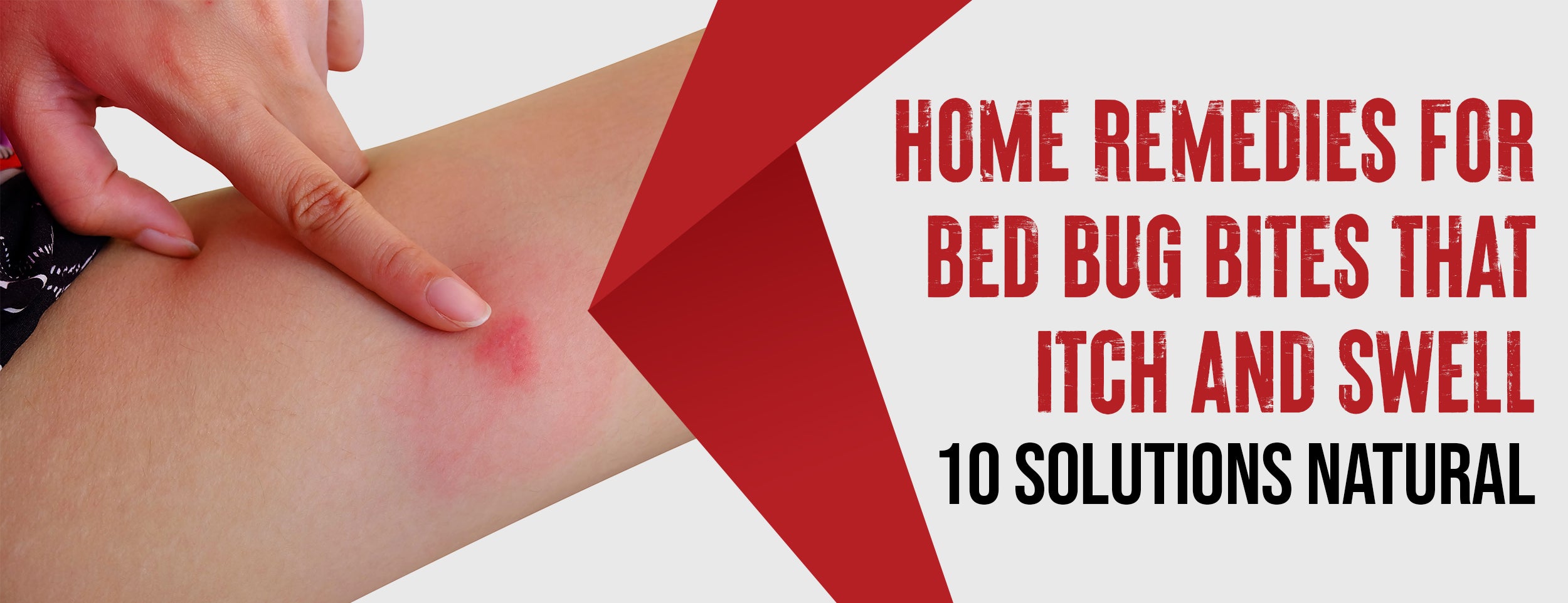The bite of some insects can transmit diseases like malaria or Lyme to humans. Fever is one symptom that certain insects cause. You should stay vigilant against these disease-carrying insects.
Yes, an insect bite can indeed cause a fever. A high fever after being bitten by an insect causes seizures and general weakness. An elevated fever may cause symptoms of mental dysfunction, such as confusion, excessive sleepiness, irritability, and convulsions.
In this blog post, we will explore can an insect bite causes fever, factors that cause fever after an insect bite, treatment options for insect bite fever, and ways to prevent insect bites and fever.
Can An Insect Bite Cause Fever: 5 Factors that Contribute

Insect bites are expected during the summer months, and sometimes, they can develop a fever. To understand the causes of this condition, an understanding of its underlying causes is essential. Here are some factors behind craze after insect bites:
- Type of insect: Certain insects, such as mosquitoes, ticks, and fleas, carry viruses and bacteria that can cause human fever. These insects' saliva can also trigger an immune response in the body, leading to a fever.
- Allergic reaction: A person can develop an allergic reaction following the bite of an insect, which can cause fever. This immune response to the insect bite can also result in other symptoms such as rash, swelling, and difficulty breathing.
- Secondary infection: An insect bite can create a point of entry for bacteria, which can cause a condition that can lead to fever. This is especially common in individuals who scratch the bite, as it can introduce bacteria from the hands to the wound.
- The severity of the bite: The seriousness of the edge can also play a role in whether you develop a fever. If the taste is severe or becomes infected, it can sometimes lead to a frenzy as your body tries to fight off the foreign substance. Sometimes, a severe allergic reaction may also cause fever.
- Your body's response: Your reaction to an insect bite can also determine whether you develop a fever. Some people are more susceptible to developing fevers than others, particularly if they have weakened immune systems. If your body is already fighting an infection, an insect bite can sometimes trigger a fever.

Symptoms of Fever After An Insect Bite
The presence of a fever shows that your body is fighting an infection, and insect bites can cause disease through the insect bite. Here are some signs and symptoms of an insect bite fever:
- Elevated body temperature: A fever is often characterized by a high body temperature above the normal range of 98.6°F to 100.4°F.
- Chills: Individuals with a fever may experience chills, which is the body's way of generating more heat to combat the virus or bacteria.
- Sweating: As the body temperature rises, the body attempts to cool itself down through sweating.
- Fatigue and Weakness: A fever can also make you feel tired and weak, and you may experience a lack of energy or motivation.
- Muscle Aches and Pains: You may experience soreness in your muscles and joints, leading to discomfort and pain.
- Nausea and Vomiting: A fever can cause digestive problems such as nausea, vomiting, and diarrhea.
- Headaches: Many people experience headaches or migraines with a fever, which can be severe.
- Sweating: Experiencing excessive sweating is a common symptom accompanying a fever after an insect bite.
6 Effective Treatment Options for Fever after an Insect Bite

Outdoor activities and everyday errands increase during warmer months, as do insect exposure and the potential for insect bites. Most insect bites are harmless and require no medical attention. Here are some practical ways to treat fever after an insect bite:
- Over-the-counter anti-inflammatory medication: Over-the-counter medication, ibuprofen, can help reduce inflammation and ease a fever. Take the medicine as directed on the package.
- Topical creams and ointments: Topical creams and lotions containing hydrocortisone or calamine can be applied to the affected area to relieve inflammation and itching.
- Cool compress: A cool compress, such as a damp cloth or an ice pack, can relieve fever symptoms. Apply the compress to the affected area for 10-15 minutes every few hours.
- Drink: Plenty of fluids, such as water or electrolyte-enhanced beverages, can help keep you hydrated and reduce fever symptoms.
- Rest: The body must receive rest following an insect bite and a related fever. You should get plenty of rest and avoid strenuous activity until you feel better.
- Seek medical attention: If you have a fever, respiratory issues, or swelling, seek medical attention immediately. These symptoms may show a severe allergic reaction requiring urgent medical intervention.

4 Prevention of Insect Bites and Fever
If you are experiencing fever from an insect bite or want to prevent insect bites from happening in the first place, this blog post is for you. Below are some practical ways to avoid insect bites and fever.
Use Insect Repellents
Insect repellents are a staple in most homes, and for a good reason! They are an effective way to keep insects away and prevent bites. Note the recommended age group for the insect repellent on the label. The recommended safety precautions should be followed when using insect repellents on children.
Avoid Outdoor Activities During Peak Insect Periods
While it may tempt you to spend a sunny day outdoors, it's best to avoid it during peak insect periods, especially at dawn and dusk when most insects are active. Ticks are especially prevalent during warmer months, so take care during outdoor excursions and activities by taking precautions, wearing proper clothing, and using bug spray to avoid being bitten.
Wear Protective Clothing

Wearing proper clothing can also protect you from bites. Wear long sleeves, long pants, shoes, and socks in bright colors that help to keep insects away. Certain fabrics, like tight-woven or thick fabrics, provide better protection than others.
Proper Yard Maintenance
Maintaining your yard and getting rid of standing water or areas of dampness can also help discourage insects from infesting your outdoor spaces and biting you. Broken tree branches or piles of leaves are potential breeding grounds for insects, so it's best to dispose of them or call a professional to handle any necessary yard work.

Conclusion
A fever can indeed result from an insect bite. This occurs when the insect's saliva triggers the body's immune system or when the saliva contains harmful bacteria or viruses that can cause an infection. Protecting yourself is essential to reduce your risk of insect bites and associated health problems.
Ensure that you wear long sleeves and pants, apply insect repellent, and stay indoors during peak mosquito and tick activity. These precautions allow you to enjoy the great outdoors without fearing insect bites and related health issues.












![6 Reasons Why Itches From Insect Bites Increase at Night [3 OTC Options]](http://drnumb.com/cdn/shop/articles/Why_Do_Insect_Bites_Itch_More_At_Night__6_Factors_4_Natural_Remedies.jpg?v=1709703294)

